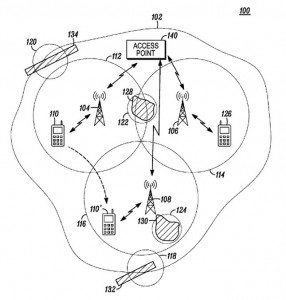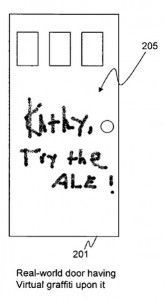Yesterday Google formally announced it is acquiring Motorola for $12.5 billion dollars in an effort to stem off intellectual property lawsuits from companies such as Apple, Oracle and Microsoft; here is the official investor’s notice to Google owners and here is the live blogging record from the press conference. The rest of this post will examine some of the benefits of this acquisition through related links and other external information. In a way, what you will see is my own research on this interesting move on Google’s part; I hope you find it informative.
Here is an snippet from the official investor’s notice which outlines very basically the reason for the purchase:
The acquisition of Motorola Mobility, a dedicated Android partner, will enable Google to supercharge the Android ecosystem and will enhance competition in mobile computing. Motorola Mobility will remain a licensee of Android and Android will remain open. Google will run Motorola Mobility as a separate business.
To get to the meat of this purchase, however, we need to consider the following snippets from the Wall Street Journal’s article on this acquisition:
Android is an example of open-source software that is designed to allow outside engineers to tinker with the way it works. While that makes Android highly customizable—companies using the software can optimize it for their devices—it also has left the operating system vulnerable to intellectual-property lawsuits.
Motorola’s patents will help Google address that weakness, which already has prompted a lawsuit by database giant Oracle Corp. Motorola, of Libertyville, Ill., holds or has applied for a total of 24,500 patents.
As noted above this purchase will strengthen Google’s position as a patent holder in the mobile space and hopefully thwart or minimize the legal actions against Motorola. That said, what kind of patents are of interest that would provoke such a major leap? I have little or no experience with patents (unlike search engine patent expert Bill Slawski) but it appears the following would stand out as welcome additions to the Google portfolio:
- Motorola Mobility Patent Example 1) Light Detection Power System and Method For Same: this is a lot easier to read than the last one and was quite fascinating. As far as I understand this patent refers to a technology which would supplement the power of your mobile phone with solar cells. The supplemental power would be used either as a supplement for the backlighting of the keypad/screen or for the charger when the
phone is off. Why might this be good for Google? I don’t know many companies with a more public desire to reduce energy consumption using green initiatives. A cellular phone with the ability to require less power consumption when in use and charging is an awesome PR piece and a fabulous step forward in their earth-saving initiatives.
- Motorola Mobility Patent Example 2) Mobility enhancement for real time service over high speed downlink packet access (HSDPA): this patent refers to increasing the speed of HSDPA connections on cellular devices using a more efficient hand-off process between the cellular device and the relevant cellular broadcasters. The patent “Method and Apparatus for Optimizing Mobility of a Mobile Device” also includes improvements to the speed of cellular phones; I included an image from that patent on the right. Why is this useful for Google? Any advances in increasing the speed of networks and thus Internet access is good for the mobile search experience and by owning the patent Google can utilize such technology in the open source landscape without fear of reprisal.
- Motorola Mobility Patent Example 3) Mobile virtual and augmented reality system: on the lighter side of things this patent refers to a rather cool advancement in mobile augmented reality
technology where you could leave virtual graffiti on a wall using your phone’s augmented reality browser and then share it only with particular people. So in essence, you can leave message for someone on any wall, anywhere and let them know it is there. They will then see the message in graffiti form when they look at the location through their cellular camera. Why would Google like this? Who wouldn’t? 🙂 Can you imagine the cool scavenger hunts such a program could offer? I know augmented reality could already do some of this but the graffiti concept is clever and I find it very much in line with Google’s flare. In addition, any monetary applications associated with such a tool can now be pursued if this twist on technology takes off.
There are many more patents… in fact just searching for “Motorola Mobility Inc.,” in Google’s Patent search provides 324 patents which is just scratching the surface of the over 17,000 issued, and over 7,500 applications out there according to Motorola’s CEO, Sanjay Jha (sourced from Business Insider).
What does all this mean to us?
Here are the pros and cons on my mind at this early juncture:
PRO) With their own manufacturing plants Google can be more assured than ever before their software will have the hardware to run on. Also by owning its own manufacturing company Google could ensure the hardware that is made is 100% compatible and tested for their operating system. This should put them in a far stronger position against Apple who has always had an edge with their highly customized hardware.
CON) Google says it will treat Motorola like any other company and require them to work for their business. This is HIGHLY unlikely and may in fact make Google soft and reduce their interest to work hard for the business of other manufacturers. Last but far from least… Google is now in the manufacturing business… this could seriously blow up in their face!
PRO) The Android OS will have more of the patents it needs to continue to blossom in the open source marketplace.
CON) None that I can think of at the moment on this one. Mind you, it helps I am a fan of Android.
PRO) Microsoft and Apple will continue to have to fight for their market share and will have less legs to stand on when trying to squash the Google’s mobile share.
CON) None from my standpoint! I love open source and Microsoft and Apple continue to grate on my nerves so I kind of like the idea they are squirming. Note) I love this classic reactive garbage Microsoft put out there: Microsoft’s Mobile Boss Andy Lees Is Talking Nonsense About Google-Motorola
Are there other pros and cons? I am certain there are, but unfortunately I haven’t had time to put much more thought into this which is why I would value your input here. What other pros and cons do you see? If you post your thoughts please be sure to counter your point with some devil’s advocacy to provide perspective if you can.
Here are some additional resources if you want to read more on Google’s Motorola acquisition:
Check out Ross’s 6 steps to increasing your bottom line online

 phone is off. Why might this be good for Google? I don’t know many companies with a more public desire to reduce energy consumption using green initiatives. A cellular phone with the ability to require less power consumption when in use and charging is an awesome PR piece and a fabulous step forward in their earth-saving initiatives.
phone is off. Why might this be good for Google? I don’t know many companies with a more public desire to reduce energy consumption using green initiatives. A cellular phone with the ability to require less power consumption when in use and charging is an awesome PR piece and a fabulous step forward in their earth-saving initiatives.